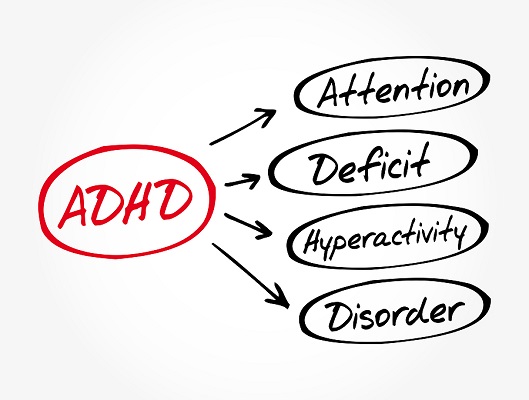A neurodevelopmental disorder, attention deficit hyperactivity disorder (ADHD) impacts both adolescents and adults. The condition is distinguished by indications such as hyperactivity, impulsivity, and inattention, all of which have the potential to substantially disrupt an individual's daily activities and overall well-being. Despite the existence of numerous treatment options for ADHD, medication continues to be one of the most prevalent and efficacious methods. This article aims to provide a comprehensive overview of ADHD medication, including its classifications, efficacy, potential adverse effects, and usage considerations.
Various Types of ADHD Medication
To manage the symptoms of attention deficit hyperactivity disorder (ADHD), physicians frequently prescribe stimulants, non-stimulants, and other symptom-targeting medications, among others. It has been demonstrated that stimulant medications are the most commonly used and most effective in reducing ADHD symptoms in many patients. Neurotransmitters that are essential for impulse control and attention, including dopamine and norepinephrine, are increased in the brain by these medications.
Methylphenidate-based stimulant medications (e.g., Ritalin, Concerta) and amphetamine-based stimulant medications (e.g., Adderall, Vyvanse) are frequently used to treat ADHD. In addition, non-stimulant drugs like guanfacine (Intuniv) and atomoxetine (Strattera) are prescribed to patients who exhibit intolerance to stimulant side effects or do not respond favorably to stimulant medications.
The Efficacy of ADHD Medication:
A multitude of studies have provided evidence regarding the efficacy of ADHD medication in mitigating symptoms and enhancing performance among those afflicted with the disorder. It has been demonstrated that stimulant medications, specifically, can substantially enhance hyperactivity, impulse control, and attention in both children and adults. Subsequent to initiating medication, a considerable number of individuals manifest discernible advantages, including enhancements in concentration, academic achievement, and social engagement.
Certain individuals may also find non-stimulant medications to be efficacious, particularly those who are allergic to stimulant medications or suffer from comorbid conditions such as substance addiction or anxiety. While these drugs may require a prolonged duration to manifest discernible effects in comparison to stimulants, they can offer comparable long-term benefits.
Possible Adverse Effects:
As with any medication, ADHD medications may induce adverse effects, the nature of which differs among patients and is contingent upon personal characteristics. The following are typical adverse effects of stimulant medications:
1. Appetite suppression: Stimulant medications may induce a reduction in appetite in children, which may result in inadequate growth or weight loss.
2. Insomnia may manifest as challenges with initiating or maintaining sleep, particularly when the medication is administered in the late afternoon.
3. Irritability or mood swings: While taking stimulant medications, some individuals may experience mood changes or emotional lability.
4. Throataches or headaches: Although typically moderate and transient, these adverse effects are possible, especially during the initial phase of adaptation.
Atomoxetine and other nonstimulant drugs may induce adverse effects including fatigue, vertigo, and sexual dysfunction. In order to ascertain the most effective course of action, it is vital to consult a healthcare provider regarding any concerns or adverse effects.
Utilization Considerations:
It is imperative to undergo a thorough assessment by a qualified healthcare professional, such as a pediatrician or psychiatrist who specializes in ADHD, prior to initiating ADHD medication. An exhaustive medical history, physical examination, and psychological evaluation may be incorporated into this assessment in order to rule out alternative potential causes of symptoms and customize treatment according to the individual's requirements.
Furthermore, consistent monitoring and subsequent appointments are imperative in order to evaluate the efficacy of medication, make any required dosage adjustments, and attend to any emergent concerns or adverse effects. In order to optimize treatment outcomes, healthcare providers may also advise the implementation of educational interventions, behavioral therapy, or other supportive strategies in conjunction with medication.
Adhering strictly to the instructions provided by a healthcare provider is of utmost importance when taking ADHD medication. It is not advisable to abruptly discontinue or modify medications without first consulting a healthcare professional, as doing so may result in withdrawal symptoms or exacerbation of existing symptoms.
Moreover, it is crucial for individuals managing ADHD to be cognizant of the possibility of misuse or diversion, particularly in the case of stimulant medications that possess a propensity for abuse. To prevent ingestion or misuse by accident, it is critical to store medications securely, refrain from sharing them, and properly dispose of any unused medication.
In conclusion:
Medication for ADHD can be an effective means of symptom management and functional enhancement for those affected by the disorder. It has been demonstrated that stimulant medications, including amphetamines and methylphenidate, are the most frequently prescribed and effectively alleviate symptoms of hyperactivity, impulsivity, and inattention. Patients who exhibit an adverse reaction to stimulants or develop intolerable side effects may be prescribed non-stimulant medications.
Although ADHD medication can substantially enhance the quality of life for many individuals, it is critical to collaborate closely with a healthcare provider to ensure safe and effective treatment and to balance the potential benefits against the risks. In conjunction with appropriate assessment, supervision, and assistance, ADHD medication has the capacity to facilitate the flourishing and optimal development of affected individuals.





Comments